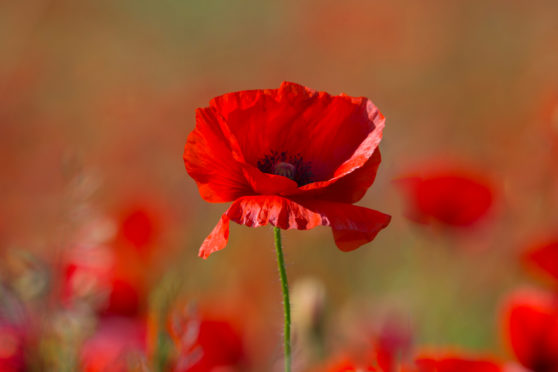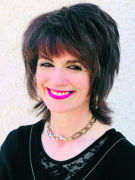I find myself wondering what the very first words were that Georges Salines and Azdyne Amimour spoke to one another when they first met in a café in the Bastille area of Paris.
Both ‘hello’ and ‘sorry’ seem so inadequate. But what words are there when your daughter has been killed in a terrorist attack and your Jihadist son, the perpetrator, has also died? Saline might say, “I hate you – your son killed my daughter.” Or Amimour might say, “Please forgive me. I failed as a father but I am his victim too.”
Perhaps the starting point of the conversation was a version of all these words but it was not where it ended. I remember, once, a woman whose sister had been murdered telling me that after the body had been dug up in a garden, a proliferation of red poppies had sprung up in the overturned soil, just as they did in the fields of Flanders, a bright, vibrant light in the darkest of circumstances. In that Bastille café, the red poppy that grew up in the ploughed field was an unlikely understanding – friendship even – between two bereaved fathers.
That is the beauty of dialogue, of starting in one place and gradually moving into another space, either intellectually or emotionally. We may start with entrenched attitudes but somehow, in listening, we develop another way of looking, another rationale. At first, Georges Salines, a former doctor, did not want to meet Azdyne Amimour, who owns a vegetarian café in Belgium. It is only when he pushed himself out of his comfort zone, when he risked, that he reaped the reward. He was impressed by Amimour’s “humanity, love of life, and tolerance.” The two men have now written a book together.
Parents are not their children. Children are not their parents. None of us can control the hearts and minds of another. But every parent will understand Amimour’s sense of responsibility about his son’s deeds, the self-questioning. In the book, each man writes a letter to the other’s dead child. In his letter, Amimour asks the question that every parent, at some stage, asks themselves: do I fall short?
For most of us, the sense of parental failure comes and goes. When my children were small, I remember standing talking to a colleague whose two boys, immaculately groomed, stood wide eyed and quiet at her side while mine, wild eyed and tousle haired ran rampage round the supermarket. I bid a hasty goodbye to haul one of them out of the deep freezers. My muttering of, “where did I go wrong” hardly merits mention when placed beside Amimour’s turmoil, but all of us in our simple experiences can find the kernel that allows us to empathise with a man whose son rejected everything that he stood for to go to Syria, before returning to wreak havoc on French society.
But also empathise – perhaps even more – with the Salines family, which is what makes this story so very human and touching: both sides experience a pain that can never be fully eased. A son and a daughter are dead. Parents on both sides are grieving, just for different things.
The atrocity that claimed Lola Saline’s life was the worst in France’s post-war history. In November 2015, she had gone to the Bataclan, a concert hall, to watch an American rock band. As the song “Kiss the Devil” belted out in the auditorium, Amimour’s son Samy and two accomplices stormed in with rifles. Twenty minutes later, Lola lay dead and Amimour was fatally shot by security forces. It was part of a concerted series of attacks across Paris that night that resulted in 130 deaths.
The picture of Lola as a child shows a pretty, pert little girl who looks so full of life that it is hard to imagine her dead. Hard, too, to imagine being her parent and being able to forgive anyone connected to her killer. But while it is all too easy to get depressed by the bleakest aspects of human nature, the terrorism and the torture and the cruelty, and even, on a more micro level, the selfishness, judgmentalism and inability to forgive, there is something incredibly inspiring when a more powerful force in human nature shines through that darkness, like the poppy in the overturned field. Forgiveness does not exonerate the past. It simply creates a future.
Albert Einstein said there were only two ways to live your life: as if everything is a miracle, or as if nothing is. It is good to see the miracle in reconciliation, to see the power in the human spirit when it is fully stretched and challenged. And also to see the miracle in conversation. Even though we often misinterpret one another, misunderstand the nuances of what is said, there is huge power when we finally talk the same language. Salines and Amimour’s book is out this month in French and we can only hope there is an English translation in the making. The title? “Il Nous Reste les Mots”. We still have words.











